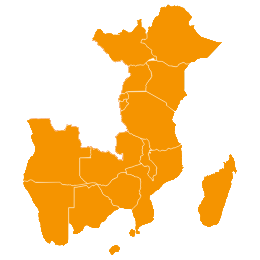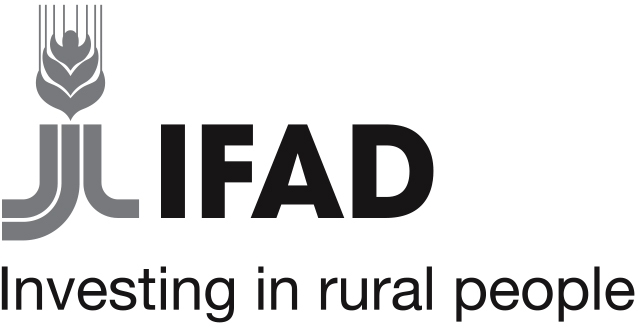Knowledge-sharing radio broadcasts help female farmers thrive
"In general the radio programmes brought a big impact and hence good service to the community."
Mary Clemence, programme manager at Sengerema Radio FM, TanzaniaBACKGROUND
Rural women in Ethiopia, Malawi, Tanzania and Uganda have limited access to radio broadcasts and their voices are rarely heard on the air. This project formed listening groups for women to share their stories and ideas, then provided them with the skills and equipment to turn their perspectives into programmes on 13 local radio stations.
WHAT’S INVOLVED
Empowering women farmers
Her Farm Radio is by women and for women, with programme topics ranging from farming best practices to gender equality issues and female healthcare. The majority of the listening groups were all-female, providing a useful space for women’s ideas to be heard and prepared for broadcast.
Training and skill-sharing
The programme trained the farmers in the use of technology and soft skills in media and PR, enabling them to both listen and contribute to local radio. Additionally, the radio station partners were given training to improve awareness of gender issues and encourage more female-friendly broadcasting.
EXPLORE THIS SOLUTION
The Her Farm Radio project can offer
- A cost-effective model for empowering women via local radio
- Experience in building professional skills, technical knowledge and confidence among rural women
- Experience working with local media to improve gender awareness

Countries involved
Ethiopia, Malawi, Tanzania and Uganda
Project partners
IFAD, IRISH Aid and Farm Radio International
Project dates
2015 - 2017
Share this solution
Bookmark this solution
BookmarkShow Full Solution
Summary
In this initiative, 13 rural radio stations in Ethiopia, Malawi, Tanzania, and Uganda produced and broadcast programmes that helped small-scale farmers, particularly women, discover and adopt climate-smart, nutrition-sensitive agricultural practices. The overall goal of the project was to increase the presence of female farmers’ voices, perspectives and concerns on the radio, and provide them with increased access to information critical to improving their livelihoods.
Farm Radio International’s (FRI) ‘Her Voice on Air’ approach was designed and developed to promote the inclusion of women in rural radio programmes about agriculture. The programme initiative includes training for radio station producers and presenters, participatory research activities to identify issues and topics of particular interest to women farmers, support for the design and production of interactive radio programmes, and the formation and mobilization of radio listener groups.
Her Farm Radio projects are not just about addressing women’s needs, but also about promoting gender equality in radio initiatives for agriculture and health, promoting better quality of life of both women and men.
Challenge
Rural women in the target countries have limited access to radio sets and mobile phones, and their voices are rarely heard on rural radio programmes. These factors, combined with a lack of on-air discussion of gender-related issues of importance to women, conspired to reduce the relevance of rural radio to female farmers, which deprives them of productivity and market outreach.
Limited access to information is a key barrier for smallholder farmers due to generally weak quality of service and outreach. In many parts of the world, women are more likely to work in agriculture than in any other sector. Much of this work is unrecorded, undervalued and unpaid.
Another challenge was an initial reluctance among Muslim women to participate, since most of these stations were understood to be run by Catholic Christians.
Solution
Farm Radio International’s Radio Craft Development Team partnered with the 13 radio broadcasters to design programmes that incorporate the voices of women in their 5.5 weekly episodes. This was done by organizing listening groups, where female farmers developed and produced stories on topics of interest to women. The stories were then integrated into the programmes.
The initiative included training events for female farmers who were part of the listening groups and contributors to the radio programmes. They were offered skills and knowledge in media, PR, and how to identify, record and share stories related to agriculture.
FRI also planned training to build the skills of radio station production teams towards a gender-sensitive approach in incorporating the voices, stories, perspectives and concerns of women farmers, and meeting the information needs of women farmers in their rural radio programmes.
Equipment like smartphones and wind-up radios were procured and distributed among the women farmers in listening groups.
The FRI team monitored each weekly programme and gave immediate improvement feedback to the production teams. FRI also developed “beep2vote” and Voto Feedback as simple ways for radio listeners to share their views, provide feedback and participate in discussions.
Results
The 13 radio stations reached over 8.1 million listeners with their Her Farm Radio broadcasts. There were 120 community listening groups set up with a total of 2,314 members. Two-hundred and sixty-two episodes of farm radio programmes containing content directly generated by women in community listening groups were produced and aired.
Overall, the solution resulted in enhanced media and public relations skills of women farmers, enabling them to advocate for their issues locally.
-
The information the women farmers received allowed them to improve their agronomic practices, promoting gender equality in radio initiatives for agriculture and health. This affected the quality of life of both women and men, increasing their food security at the household level.
-
The programme was very cost effective, as the average cost per listener who practised improvement through the participatory radio campaign (PRC) was approximately 70 cents (USD).
-
Through production of radio programmes, women have increased access to information that is critical to improving their livelihoods and help them to be more resilient as a group or community. Once trained, participants could provide on-air support via specialized programmes tailored to meet the needs of other local female farmers.
-
The initiative built the capacity of female farmers, giving them a voice to advocate for their needs and rights with a view to scaling it up in other parts of the world. They felt empowered because they were able to discuss agriculture and gender issues as a group and then discuss the same issues at home with their husbands.
Lessons learned and potential for replication
-
Participants require an appropriate number of person-days’ training on how to use the phones, especially for those with no phones of their own.
-
Women need to have opportunities to participate equitably in all conversations, sharing their own experiences, perspectives and needs.
-
Regular monitoring of radio episodes and sharing feedback with producers and presenters is needed for continuous quality
Solution Additional Resources
IFAD report on Farm Radio (English) Her Farm Radio General Brief (English) Final Project Report - Her Farm Radio (English)Last update: 09/08/2018

